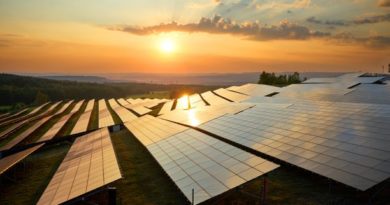Saudi Aramco pitches in for $44 Billion refinery on India’s West Coast

Published on: Apr 13, 2018
The Saudi Arabian Oil Co., Saudi Arabia’s national oil firm commonly known as Saudi Aramco on Wednesday signed an MOU with Ratnagiri Refinery & Petrochemicals to construct a US $44 billion refinery and petrochemical complex in Maharashtra.
Under the MOU, accordingly when the deal is completed it’ll become the biggest foreign direct investment ever in the Indian oil sector since Russian major Rosneft acquired Essar group’s Vadinar refinery in Gujarat refinery last year. Interestingly, this deal will be followed by more, according to Khalid al-Falih, the Energy Minister of Saudi Arabia.
“India has always been a priority destination for us– it’s geographically adjacent to the kingdom, it has a large population with a large economy,” al-Filah said while addressing the reporters on the side-lines on the 16th International Energy Forum Ministerial Meeting in New Delhi.
The project once completed will have the capacity to process 60 Million Tonnes of Crude Oil and produce 18 million tonnes of Petrochemicals products every year. Making it the second largest refinery complex after Reliance’s Jamnagar complex (68 Million).
As a partner on the deal, Saudi Aramco will also provide half, or 30 million tonnes of Crude oil at the refinery. This deal, clearly augments the India ‘growth’ story and the ‘positive’ impact of the NaMo Government’s oil sector reforms. In a bid to sustain its growing economy by attracting global investors.
In a time when the need to shift to alternate energy sources is apparent, this deal, when it is closed, is also a reality check on the distance that needs to be travelled for renewables in India. As the 3rd largest oil consumer in the world remains the only large economy to expect to continue increasing its appetite for oil in the foreseeable future. Both International Energy Agency and OPEC have projected India to be the main driver of incremental global oil demand over the next decade and more.
In fact, when considered vis a vis the troika of transportation, energy and agriculture, widely considered as the three biggest contributors to climate change and pollution, the country remains helplessly addicted to fossil fuels, be it oil or coal.
According to the BP Statistical Review of World Energy, India’s oil consumption growth will be the fastest among all major economies by 2035. As energy consumptions will grow by 4.2% per annum, India’s consumption growth of fossil fuels would be the largest in the world. Projected to overtake China as the largest growth market for energy in volume terms by 2030. However, unlike China which has made a massive shift in intent and funding for renewable sector, India is still sanctioning mega multi-billion dollar deals involving oil for its growing economy
With global oil prices already ruling above internal estimates of the Indian government, the Saudi deal might be one way to negotiate better rates, besides feeding growing demand. The refinery complex, planned in the ecologically sensitive west coast of the country will also come up for its share of evaluation in terms of impact on the environment.
The BP report does have a silver lining though. It ends with predicting Renewables as the second largest fuel produced in the country by 2035, ahead of oil.
![]()




